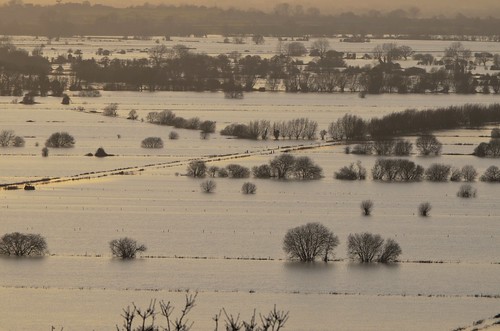Tuesday, 18 February 2014
Knowledge Management in a Crisis - managing knowledge from rare events
How do you manage knowledge from really rare events? From the infrequent crises?
Often we rely on accessing knowledge and experience from others through mechanisms such as social media or communities of practice, but this method falls down when the events we need to learn about happen very rarely, and the last occurrence was a long time ago. If the last time the event happened was, say, 10 years ago, it lies beyond the reliable limits of human memory. The human memory is unreliable over a long span; we post-rationalise, we partially recall, we invent memories, or we simply forget.
I was thinking about this in the light of two events that happened nearby.
The first event was the warning of a possible "snow day" at a nearby school. Days where the snow is so bad that schools have to be closed, are extremely rare in South West England, and the last one was 5 years ago. Luckily the school had learned from this past snow day, and, and had drawn up a "snow day" checklist as a resource for the future, including the precautions to put in place, the decision making process, and the numbers to call (the parents, the local radio, the staff etc).
The second event is the catastrophic flooding in Somerset, which has lasted for several weeks already. Here there seemed to be far less in the way of pre-planned check-list response, and there may be political reasons for this.
With the last floods in 2007 I was strongly advising one of my clients, who was in charge of KM for one of the affected public utilities, that they needed to hold a decent Retrospect, to improve their flood response process. She tried to get this to happen, but it proved politically impossible to hold an in-house review while the big government-funded public enquiries were happening. No doubt these enquiries were of value, but they were not focused (as the Retrospects would have been) in developing improved flood-response processes for this particular utility company.
In the UK we are already seeing efforts in the media to find someone to blame for "inadequate flood defence". This blaming culture will, if we are not careful stifle the openness that effective KM requires, and remove the possibility of effective retrospective style review.
We don't need blame, we need learning, so that when this rare event happens again, which global climate change suggests it will, we will find a legacy body of knowledge that allows instant and informed action.
The approach to KM from rare events has to be to create a legacy body of knowledge
through objective uncritical unblaming review, to determine what happened, why it happened, and how it should be handled next time, and then to store that as a "knowledge asset" for re-use next time..
Because no matter how rare the event, there will be a next time.
Subscribe to:
Post Comments (Atom)





No comments:
Post a Comment